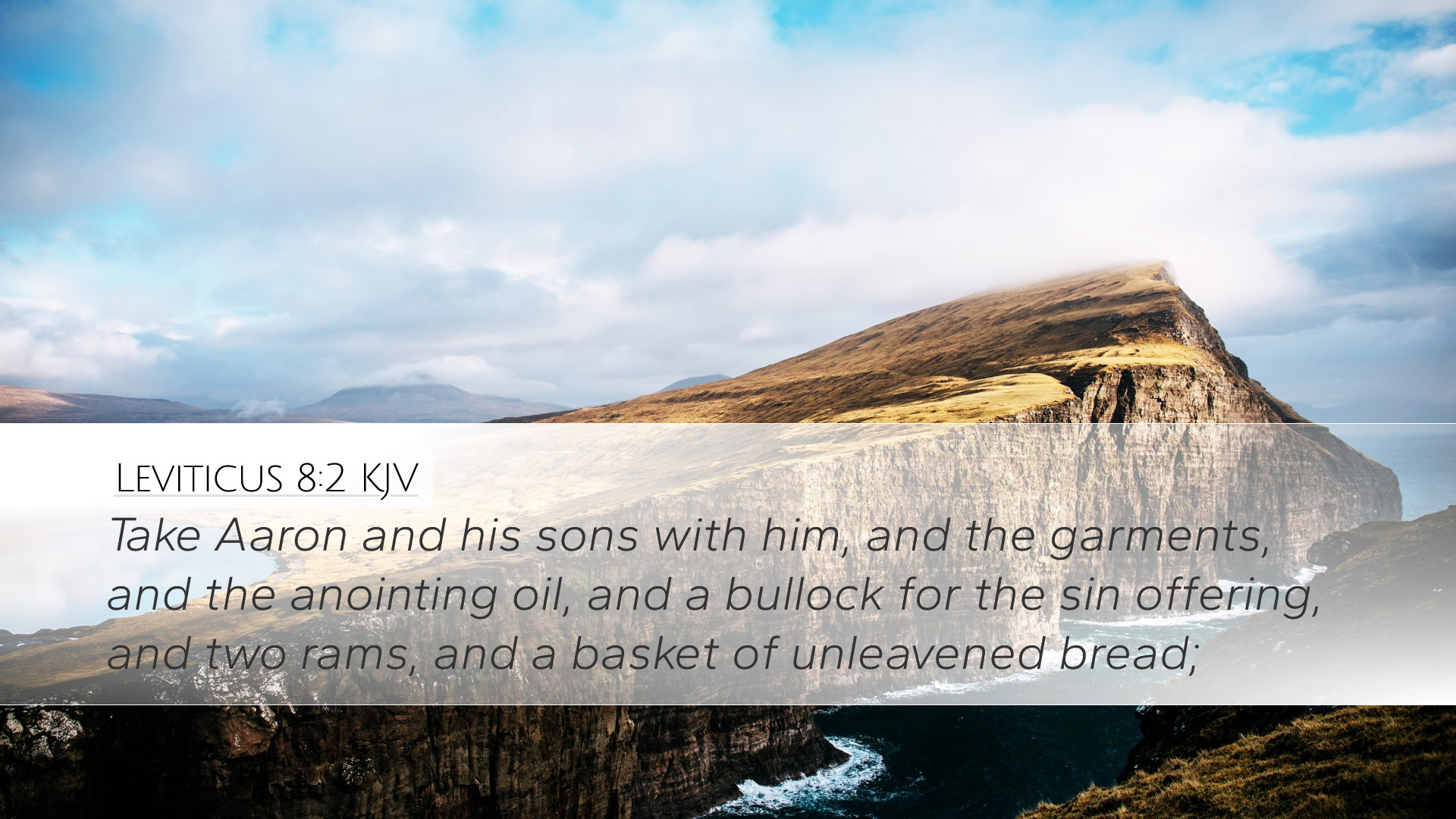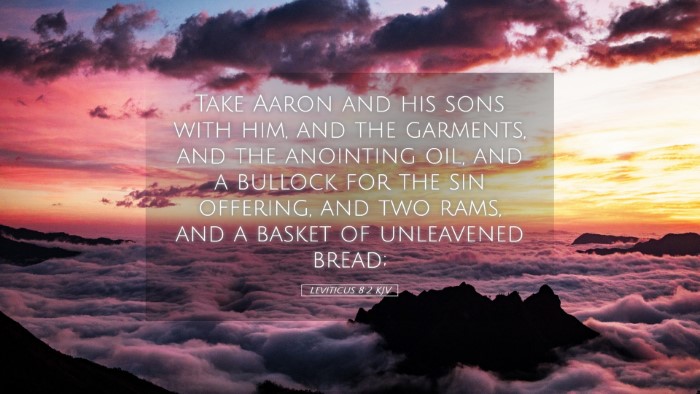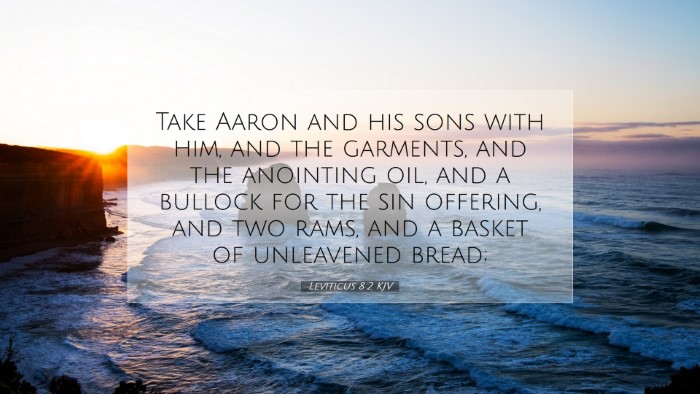Commentary on Leviticus 8:2
Leviticus 8:2 states: "Take Aaron and his sons with him, and the garments and the anointing oil, and the bull for the sin offering, and the two rams, and the basket of unleavened bread." This verse marks a significant moment in the establishment of the priesthood, highlighting themes of consecration, holiness, and divine appointment. Below, we explore the insights from various public domain commentaries which deepen our understanding of this verse.
Contextual Overview
The book of Leviticus is primarily concerned with the laws governing worship and sacrificial practices, given to the Israelites after their exodus from Egypt. This particular chapter focuses on the consecration of Aaron and his sons as priests.
Matthew Henry's Commentary
Henry emphasizes the significance of the ordination process prescribed in this chapter. He notes that:
- The selection of Aaron and his sons signifies the divine choice of a specific lineage for the priestly duties, reinforcing the idea of God's sovereignty in appointing leaders.
- The mention of garments reflects not only the role's dignity but also the necessary symbolism that connects physical attire to spiritual readiness and the seriousness of service to the Lord.
- The use of sacrificial offerings, including the bull for sin and two rams, underscores the critical relationship between sin and the need for atonement within the worshiping community.
Albert Barnes' Commentary
Barnes articulates the theological implications of the passage, stating that:
- The act of taking both Aaron and his sons signifies the foundation of the priestly system, which is essential for the covenant community's relationship with God.
- The inclusion of anointing oil, a symbol of the Holy Spirit, indicates that the priestly office is not merely a ceremonial role but one that requires divine empowerment for effective service.
- Furthermore, Barnes points out that the careful instructions about offerings suggest that God desires order and reverence in worship, emphasizing that approach to God must be done with an awareness of His holiness.
Adam Clarke's Commentary
Clarke provides insights into the nuances of the verse, particularly focusing on:
- The garments listed are indicative of the glory and beauty that should characterize those who serve God’s people, symbolizing righteousness and the need for purity.
- He highlights that the bull for sin offering is critical because it represents the need for cleansing and redemption, pointing to the ultimate sacrifice of Christ as the fulfillment of this need.
- Clarke further suggests that the basket of unleavened bread symbolizes the purity and simplicity necessary in worship, as leaven often represents corruption and sinfulness.
Theological Implications
This verse serves as a foundational text for understanding the priesthood in ancient Israel and its relevance for contemporary believers.
Consecration and Holiness
The detailed instructions for consecration illustrate a deep concern for holiness among those called to serve God. Pastors and leaders today must regard their own callings with the same level of seriousness, recognizing that their roles come with a divine expectation of moral and spiritual integrity.
The Role of Sacrifice
The sin offering provided here is a precursor to the greater sacrifice found in Christ, pointing to the necessity of atonement for approaching a holy God. This teaches us that a relationship with God requires constant acknowledgment of our need for grace.
Divine Appointment
In a broader sense, this passage challenges modern interpretations of leadership in the church, urging a return to the acknowledgment that God appoints leaders, and they must be empowered and adorned for their sacred responsibilities.
Conclusion
Leviticus 8:2 encapsulates profound truths about God's method of establishing leaders among His people and how this relates to worship, sacrifice, and holiness. The insights from these commentators remind us that every aspect of our worship must be grounded in an understanding of God's holiness and our need for redemption.


